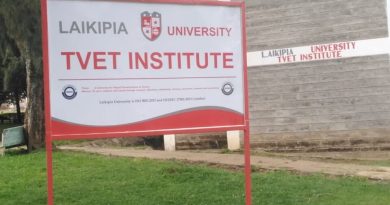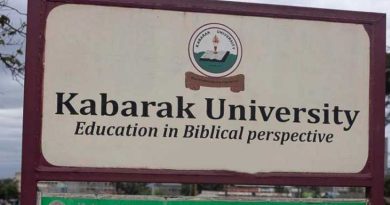Master of Science in Mechanical Engineering At Dedan Kimathi University Of Technology
A Master of Science (M.S.) in Mechanical Engineering at Dedan Kimathi University Of Technology is a postgraduate degree that provides students with advanced knowledge and skills in the field of mechanical engineering. It is an ideal choice for individuals who wish to deepen their understanding of mechanical engineering principles, enhance their technical expertise, and pursue career opportunities in industry, research, or academia.
Qualifications to study Master of Science in Mechanical Engineering Program at Dedan Kimathi University
To study a PhD Mechanical Engineering Program at Dedan Kimathi University one must be a holder of a Bachelor of Science Degree in Mechanical Engineering with at least Second Class Honors, Upper Division of DeKUT. OR
A holder of a Bachelor of Science Degree in Mechanical Engineering with at least Second Class Honors, Lower Division, of DeKUT with not less than two (2) years relevant work experience. OR
A holder of a Bachelor of Science in Mechanical Engineering, with Second Class Honors-Upper Division or Second Class Honors-Lower Division but with two (2) years professional work experience in area relevant to the programme, from another institution recognized by the DeKUT Senate as being of satisfactory academic status. OR
Any other qualification recognized by the DeKUT Senate
Mode Of Study
Main Campus
Full time: 2 years
About Master of Science in Mechanical Engineering at Dedan Kimathi University Of Technology
The M.S. program in Mechanical Engineering builds upon the foundation laid during undergraduate studies and offers more specialized and advanced coursework. Students typically enter the program with a bachelor’s degree in mechanical engineering or a related field, although some universities may admit students from other engineering disciplines or with relevant work experience.
The admission requirements for M.S. programs in Mechanical Engineering can vary among institutions, but they generally include a strong academic background, letters of recommendation, a statement of purpose, and satisfactory performance on standardized tests such as the GRE (Graduate Record Examination). Some universities may also consider research experience or relevant industry experience as part of the admission criteria.
Once admitted, students in the M.S. program have the opportunity to choose a specific area of concentration within mechanical engineering based on their interests and career goals. These concentrations may include fields such as robotics, thermal sciences, fluid mechanics, materials science, solid mechanics, control systems, renewable energy, or manufacturing processes.
The curriculum of the M.S. program typically consists of a combination of advanced coursework and research-oriented projects. Students take specialized courses that delve deeper into their chosen field of study, allowing them to develop a thorough understanding of the fundamental theories, principles, and practices within that area. The coursework may cover topics such as advanced mechanics, heat transfer, computational fluid dynamics, finite element analysis, advanced control systems, advanced manufacturing techniques, and more.
In addition to coursework, M.S. students may have the opportunity to engage in research projects under the guidance of faculty advisors or industry professionals. These projects enable students to apply their theoretical knowledge to real-world problems, develop practical skills, and contribute to the advancement of knowledge within their chosen field. Research projects may involve experimental work, computational modeling, simulations, or theoretical analyses, depending on the nature of the research topic.
Throughout their studies, M.S. students are encouraged to participate in seminars, workshops, and conferences to stay updated with the latest developments and trends in mechanical engineering. They may also have opportunities to collaborate with other students and researchers, which fosters a multidisciplinary approach and promotes the exchange of ideas and expertise.
The duration of an M.S. program in Mechanical Engineering varies, typically ranging from one to two years of full-time study. Part-time options may also be available to accommodate working professionals. The program’s duration is influenced by factors such as the university’s requirements, the chosen concentration, and the student’s progress.
Upon completion of the M.S. program, graduates are equipped with advanced technical knowledge, problem-solving skills, and a deeper understanding of their chosen area of concentration within mechanical engineering. They are well-prepared to pursue a variety of career paths, including roles in research and development, design engineering, project management, consulting, or academia.
Master’s degree holders in Mechanical Engineering can find employment opportunities in diverse industries such as automotive, aerospace, energy, manufacturing, robotics, biomedical engineering, and more. They may work for engineering firms, research institutions, government agencies, or multinational corporations. Some graduates may choose to continue their education and pursue a Ph.D. in Mechanical Engineering or a related field.
In summary, a Master of Science in Mechanical Engineering offers students an opportunity to advance their knowledge, gain specialized skills, and explore their specific interests within the field. It provides a solid foundation for professional growth, opens doors to a wide range of career opportunities, and prepares individuals to contribute to the development of innovative solutions to complex engineering problems.
Related
Dedan Kimathi University Of Technology PhD Mechanical Engineering Program
List Of Courses Offered By Dedan Kimathi University of Technology




